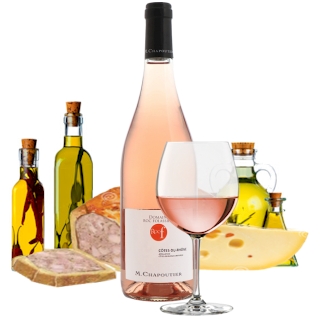


In the early 1960's detailed climatic studies of various regions in Southwestern Australia revealed that during the winegrowing season, Margaret River's climate was similar to that of Bordeaux, particularly Pomerol. The conclusion that Margaret River was ideal for viticulture was first tested in Wilyabrup in 1966, when Diana and Kevin Cullen planted a trial acre of vines. The encouraging results led to the couple planting 18 acres of vines on their sheep and cattle farm in 1971.

Cullen Wines has since evolved into an estate specialising in quality wines from single vineyard sites. In his book 'Wisdom of the West' Bertrand Russell states that "Philosophy is as the Greeks put it a kind of adventure undertaken for its own sake." The philosophy of Cullen Wines is to search for the best quality expression of the vineyard in the wine.
The vineyard site at Cullens was carefully chosen for its potential to produce great wine, and in particular red wine. The maritime climate, rocky soils, dry farming, and organic practices all help to create individual and diverse winestyles which are unique to Cullen. Diana and Dr Kevin Cullen arrived in Busselton from Tasmania in 1948. They began to purchase land in the Margaret River region for farming purposes.
Studies carried out by renowned WA agronomist Dr. John Gladstones proved conclusively that Margaret River would be ideal for viticulture and particularly the production of quality wine. Dr Kevin Cullen and his wife Diana first tested this notion by planting a trial acre of vines in 1966. It was to mark the beginning of Margaret River as a wine region. Kevin and Di were so pleased with the results of the trial that they planted 18 acres of vines on their sheep and cattle farm. These initial varieties were Cabernet Sauvignon and Riesling - being the only varieties they were able to source.

The soils at Cullen are old, granite and gravely sandy loam, overlaying lateritic subsoils. The vines are dry farmed, helping to ensure maximum fruit quality, and are both pruned and harvested by hand. Low yields enable the flavours of the grapes to develop fully. The Cullen family philosophy is to put quality before quantity. Quality starts in the vineyard where the vines are dry farmed. Cullen Estate Vineyard has "A" Grade Biodynamic Certification with the Biological Farmers Association.
Cullen follows the maxim that great wines are made in the vineyard. Thus, prior to planting, extreme care is taken in choosing the best possible site.
The uniqueness of Cullen Wines comes in part from the vineyard. The role of the winemaker is to act as caretaker to the fruit, i.e. to understand and to realise the full potential of the vineyard and the fruit which comes into the winery. As Diana and Kevin Cullen had such great foresight to plant on one of the great winegrowing sites in Margaret River, the winemakers job, working with such high quality fruit, has been made pleasurable.
There is, however, still a lot of experimentation and hard work which takes place in the winery at all times. At all steps of the process the wine, or wine to be is treated gently and with great care. The process of making the wine involves handling the fruit as little and as gently as possible. Practices such as hand harvesting, very little fruit transport, sorting of the fruit before crushing, minimal wine movement, minimal fining and filtration are used. This helps to ensure that the wine in the bottle is a true expression of the fruit that it is made from.
